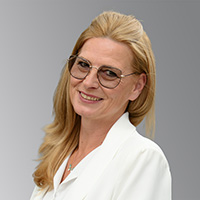The goal
The goal of the bachelor's degree program Building and Property Management/Facility Management is to enable graduates to carry out management tasks as part of the entire life cycle of real estate following a first professional, academic qualification. The degree program provides content from engineering sciences, business administration, law and management.
The training is practical and modern, application-oriented and modular. A sufficient professional standard is already achieved after six semesters, meeting current market requirements.
Possibilities include directly switching to a career or continuing your studies in the master's degree program.
Due to the environmental targets defined by the Federal Government in the National Action Plan for Energy Efficiency, which stipulate an 80% reduction in the final energy consumption of buildings by 2050, it is necessary to increase the efficiency of the energy used. Technical property management is gaining in importance due to the increasingly complex technical building installations and the associated complexity in planning, construction, adjustment and control.
The buildings need about 1/3 of our total energy in Germany. More than 50% of this is needed for heating alone. If buildings are cooled even more, the percentage is well over 70% and yet many properties do not work. People do not feel comfortable in them.
The well-being can be increased and 10 to 30% of the energy loss can be avoided. The reasons for the poor efficiency of the systems and a lack of well-being in buildings are mainly due to:
The buildings need about 1/3 of our total energy in Germany. More than 50% of this is needed for heating alone. If buildings are cooled even more, the percentage is well over 70% and yet many properties do not work. People do not feel comfortable in them.
The well-being can be increased and 10 to 30% of the energy loss can be avoided. The reasons for the poor efficiency of the systems and a lack of well-being in buildings are mainly due to:
- the complexity of the facility
- the coordination of the individual system components with each other
- incorrectly dimensioned power generation and distribution
- compensation of system defects by their performance
- changed or never correctly set control parameters
What's in Store for You
The first section is devoted to depeening and expanding the basic knowedge and includes the first three semesters. Foundations are mainly taught in the compulsory modules. Particularly ambitious students can also take the additional modules offered.
- Mathematics
matrix calculation for the systematic design of technical FM systems - Statistics and financial mathematics
for inspections and maintenance intervals, feasibility studies - Information technology
Office programs, internet and intranet, data structures and database organization as tools for document and data management and data exchange - Fundamentals of load-bearing theory
for the understanding and as a basis for including specialized planners - Material science
for the assessment of the properties of existing constructions, for the possibility of combinations and the life of the constructions - Basic principles of building technology
for the understanding of measurement, control and regulation technology and physical principles - Building physics
for the understanding of total energy balances, moisture transfer and moisture damage, measures for maintaining buildings - Basics of Business Administration
cost and performance accounting for the understanding of economic contexts - Management Fundamentals
in the area of property and portfolio management for a comprehensive approach
The second section – semesters 4 and 5 – imparts practical knowledge of construction and real estate management. It contains the specific content of all essential subject areas. In addition to the compulsory modules, elective modules are offered as well. This allows you to select and define your personal interest for your later career.
- Computer-aided facility management
for the use of available program systems of technical FM - Public and private construction law and real estate law
for legally compliant project development, drafting of contracts and the correct actions in the case of service interruptions - Procurement/contracting
implementation of contents from private building law and project management - Project management
for reliable control of the planning and construction processes during construction in existing buildings, during changes in use or maintenance - Building construction
for the recording of the interrelationships between function and construction, evaluation of existing constructions, systematic design of technical FM systems - Technical building equipment
for understanding the mode of operation of the installed systems - Building control technology
for monitoring and automation of technical installations - Business administration for FM
for recording the monetary dependencies of FM services
Together with the practical project and the bachelor's thesis, the sixth semester forms the end of the course of study. The focus here is on practical knowledge acquired during the studies, its application at a company and the acquired skills in scientific work.
Personality-building and leadership-promoting events on rhetoric, negotiation and discussion, leadership and conflict management, as well as organisational events on time and knowledge management, are offered as modules and taught in subject-related courses.
Your professional prospects
A comparison of the number of graduates in the next few years and the demand results in an offer of three to four positions per student. Companies and organizations in the following areas have a long-term need:
- Commercial: Real estate departments of banks and insurance companies, offices, trade, building leasing
- Industry: Train station and airport operators, supply and disposal companies, transport companies, real estate funds
- Churches: Building departments, social services, hospitals and nursing homes
- Public sector: Municipal building management, owner-occupied enterprises, building yards
- Housing industry: Property developers, technical departments
- Project developers
- Project management offices
- Engineering and architectural offices
- Consulting (operating concepts, energy management)
- Contractors
- Suppliers of technical building equipment
- Building services companies
- Property management companies
- Facility services companies
- Providers of private-public partnerships (PPP)


